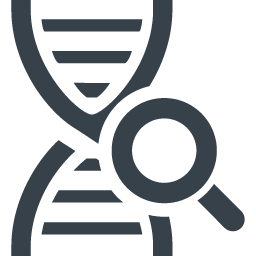 PPM1D gene related symptoms and diseases
PPM1D gene related symptoms and diseases
All the information presented here about the PPM1D gene and its related diseases, symptoms, and test panels has been aggregated from the following public sources: HGNC,OMIM,ORPHANET,NCBIGENE, Mendelian Rare Disease Search Engine.
Top 5 symptoms and clinical features associated to PPM1D gene
| Symptoms // Phenotype | % Cases |
|---|---|
| Pain | Common - Between 50% and 80% cases |
| Neoplasm | Uncommon - Between 30% and 50% cases |
| Vomiting | Uncommon - Between 30% and 50% cases |
| Behavioral abnormality | Uncommon - Between 30% and 50% cases |
| Constipation | Uncommon - Between 30% and 50% cases |
Other less frequent symptoms and clinical features
Patients with PPM1D gene alterations may also develop some of the following symptoms and phenotypes:Not very common - Between 30% and 50% cases
- Posteriorly rotated ears
- Hyperactivity
- Autism
- Gastroesophageal reflux
- Thin upper lip vermilion
- Anxiety
- Hyperlordosis
- Low-set, posteriorly rotated ears
And 34 more phenotypes, you can get all of them using our tools for rare diseases.
Rare diseases associated to PPM1D gene
Here you will find a list of rare diseases related to the PPM1D. You can also use our tool to get a more accurate diagnosis based on your current symptoms.
HEREDITARY BREAST CANCER
Alternate names
HEREDITARY BREAST CANCER Is also known as familial breast cancer, familial breast carcinoma, hereditary breast carcinoma
More info about HEREDITARY BREAST CANCER
SOURCES: ORPHANET
BREAST CANCER
Alternate names
BREAST CANCER Is also known as breast cancer, familial
Description
Breast cancer (referring to mammary carcinoma, not mammary sarcoma) is histopathologically and almost certainly etiologically and genetically heterogeneous. Important genetic factors have been indicated by familial occurrence and bilateral involvement.
Most common symptoms of BREAST CANCER
- Neoplasm
- Pain
- Carcinoma
- Gynecomastia
- Breast carcinoma
More info about BREAST CANCER
INTELLECTUAL DEVELOPMENTAL DISORDER WITH GASTROINTESTINAL DIFFICULTIES AND HIGH PAIN THRESHOLD; IDDGIP
Description
IDDGIP is an autosomal dominant syndromic neurodevelopmental disorder characterized by delayed psychomotor development, intellectual disability with speech delay, and behavioral abnormalities. Most patients have variable additional features, including feeding and gastrointestinal difficulties, high pain threshold and/or hypersensitivity to sound, and dysmorphic features, including mild facial abnormalities, strabismus, and small hands and feet (summary by Jansen et al., 2017).
Most common symptoms of INTELLECTUAL DEVELOPMENTAL DISORDER WITH GASTROINTESTINAL DIFFICULTIES AND HIGH PAIN THRESHOLD; IDDGIP
- Intellectual disability
- Global developmental delay
- Short stature
- Generalized hypotonia
- Strabismus
More info about INTELLECTUAL DEVELOPMENTAL DISORDER WITH GASTROINTESTINAL DIFFICULTIES AND HIGH PAIN THRESHOLD; IDDGIP
SOURCES: OMIM
Search interest in PPM1D
Potential gene panels for PPM1D gene
PPM1D Panel
 United States.
United States.
By Fulgent Genetics Fulgent Genetics
This panel specifically test the PPM1D gene.
More info about this panel United States.
United States.
Comprehensive Hereditary Cancer Panel Panel
 Finland.
Finland.
By Blueprint Genetics Comprehensive Hereditary Cancer Panel that also includes the following genes: RIT1 RRAS RUNX1 BLM SDHA SDHB SDHC SDHD BMPR1A BRAF
More info about this panel Finland.
Finland.
Hereditary Cancer Comprehensive Panel Panel
 United States.
United States.
By NeoGenomics Laboratories NeoGenomics Laboratories, Inc. Hereditary Cancer Comprehensive Panel that also includes the following genes: RUNX1 SDHB SDHC SDHD BMPR1A BRCA1 BRCA2 STK11 EPCAM TERC
More info about this panel United States.
United States.
BREAST AND OVARIAN CANCER NGS PANEL Panel
 Spain.
Spain.
By Laboratorio de Genetica Clinica SL BREAST AND OVARIAN CANCER NGS PANEL that also includes the following genes: BLM BRCA1 BRCA2 STK11 EPCAM TP53 WRN CDH1 PSMC3IP TNFRSF13B
More info about this panel Spain.
Spain.
Tempus xO assay Panel
 United States.
United States.
By Tempus Labs, Inc. Tempus xO assay that also includes the following genes: BCL6 RHEB RIPK1 RIPK2 RIPK3 RIT1 BCL7A BCL9 BCR ROBO2
More info about this panel United States.
United States.
If you liked this article maybe you will also find interesting the following in-depth articles about other rare diseases, like LRRK2 BMPR1B ACACA